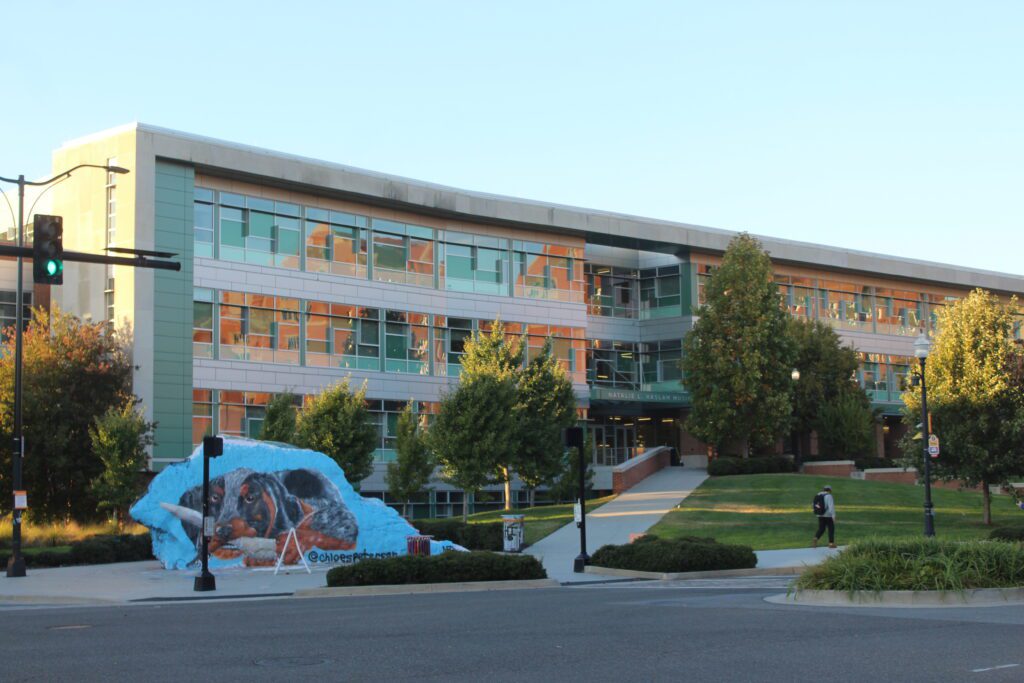Faculty Response Still Mixed on UT Academic Restructuring

Natalie L. Haslam Music Center, current home to the School of Music, Oct. 17, 2022. | Caroline Mueller
Last month the University of Tennessee’s Chancellor Donde Plowman and Provost John Zomchick announced that the university will move forward with plans to restructure the College of Arts and Sciences.
The proposed restructuring is a part of the next steps to advance Plowman’s “New Strategic Vision” for the university, which was unanimously approved by the UT Advisory Board in April 2021.
Despite board approval, the plan, which proposes breaking up the college into at least three separate colleges, has been met with some faculty resistance, as evidenced by previous reporting by the Daily Beacon and communications from the United Campus Workers.
Since the start of this initiative, faculty have raised a number of concerns. The main concerns were rooted in the idea of breaking up the College of Arts and Sciences, with a majority of faculty opposing that idea.
In May 2021, Plowman and Zomchick shared in an email with faculty that the current organization of academic colleges would be examined, and steps would be taken to make bold changes in a rapidly changing educational landscape.
“It is our hope that this process will be embraced as an opportunity to reimagine how we serve our disciplines and our students,” Plowman said in the email.
Many faculty members were not aware that restructuring was even being considered until a town hall meeting last Spring.
“The rationale for restructuring wasn’t clear,” said Dr. Todd Freeberg, a psychology professor. “It’s still sort of not clear. I think a lot of faculty have the view that these are solutions in search of a problem…Like there is no problem right now. That maybe can’t be fixed with some additional staff. That’s a sentiment that I think a lot of faculty hold.”
Listen to more of the interview with Todd Freeberg.
Freeberg also serves as the UTK chapter president for the American Association of University Professors (AAUP). He says that higher administration paid attention to feedback from the AAUP, but it was not easy.
“We really had to raise our voice and do it consistently to be heard,” Freeberg said in an interview.
Some faculty feel as though the initiative has moved too quickly and they have been left in the dark for a lot of the planning process.
“There’s just not enough shared governance,” Freeberg said. “There’s not enough faculty voices going into the decision making processes here.”
Some parts of the restructuring are more controversial than others. Music faculty, for example, seem to favor the direction for the music department, which would establish its own college.
“In an advisory vote to the Chancellor and Provost, 78.9% of music faculty voted in favor of a College of Music,” Dr. Jeffery Pappas, director of the School of Music said in an email interview. “There is a palpable excitement among an overwhelming majority of the faculty. They look forward to the future being a stand-alone College of Music. Among those who are anxious, we have made it clear that we got to the School of Music we are today together, and we will become a College of Music exactly the same way – together.”
Students currently pursuing music degrees also support this change.
“The needs of music majors are really specific and different from every other college, especially in arts and sciences,” said freshman music composition major Michael Bass-Callahan. “So I think maybe the School of Music being an individual college can help catalogs be more designed for specific majors and paths.”
Scotty Hunnicutt, a junior in music education, said he believes there is enough demand for the music school to become a standalone college.
“There’s just such a strong community strictly within the school of music that isn’t related to any arts or sciences,” Hunnicutt said. “So I think you’d get a much more personalized and essentially a more helpful experience because of that.”
The academic restructuring proposal as of now includes these major changes:
- Create a Baker School (or College) for Public Policy.
- Create a new College for Interdisciplinary Programs that will offer degree programs for emerging majors that do not fit current collegiate structures.
- Create a standalone College of Music to better meet the needs of music students and faculty. The music school would be the only program separated from the College of Arts and Sciences.
- Establish a divisional structure within the College of Arts and Sciences to better meet the needs of the faculty of the 42 different academic programs. The College will be split into three divisions, and each one will have a divisional dean who will report to an executive dean.
The Board of Trustees will vote on the proposal this February at its annual meeting. If approved, the changes will be implemented in Fall 2023.

